Another season, another 10 great European movies – that’s all it took for me to win a chance to go to Berlinale – Berlin International Film Festival. I know that the festival will be amazing (and I promise to write a short overview of my highlights afterward), but winner or not – the best thing about this challenge is the additional motivation to watch good movies from different European countries. I think everyone should do it, and I hope the challenge will include new participating countries with each season! In this post, I just want to briefly reflect on my 10 winning movies, so read on if you’re interested.
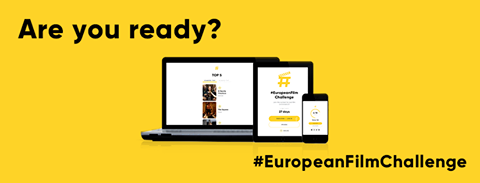
About the Challenge: it’s an ingenious competition taking place for the 3rd time in four European countries – Latvia, Lithuania, Estonia, and Serbia. Every entrant must watch 10 different European films during a limited period of time and upload a photographic proof on the website of the challenge. Each film gives points, and the person who gets the most points at the end of the challenge from each country gets to go to a film festival. This time the grand prize is the attendance of Berlin International Film Festival.
Because it’s my third time doing the challenge, I already have a strategy for choosing my films: (1) nothing from France, Germany, UK, Spain or Italy (and not because I don’t love their movies); (2) a couple of documentaries; (3) several new releases and a couple of classics; and (4) a mix of genres. Overall, it gets me the right amount of points as well as adds diversity to my watch list. But enough about that, let’s talk about the movies!
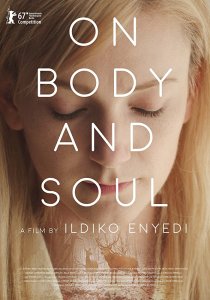 Movie No. 1: On Body and Soul (Hungary, 2017)
Movie No. 1: On Body and Soul (Hungary, 2017)
Director: Ildikó Enyedi
Genre: Drama, Romance
A beautiful love story taking place in two worlds – a dream world and a real world. Every night Endre and Mária share a dream. They are both deer roaming the woods of what I can only assume is Hungary. They have never met in real life.
Mária starts working at the slaughterhouse, meets Endre and they soon find out that they have the same dreams. They start seeing each other, but the real world relationships are not so simple. Mária is autistic, but Endre has a physical disability – they are both somehow damaged and unfit for the real thing. The movie follows their journey through ups and downs while trying to make it work in both worlds. It is at times clumsy, funny, sad, heartbreaking, but thoroughly beautiful! The nature scenery on the big screen was breathtaking. If there’s one movie I would really recommend from my 3rd season’s watch list, this would be it!
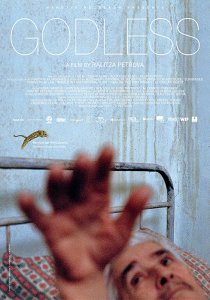 Movie No. 2: Godless (Bulgaria | Denmark | France, 2016)
Movie No. 2: Godless (Bulgaria | Denmark | France, 2016)
Director: Ralitsa Petrova
Genre: Drama
From beautiful to sad and tragic – that’s the main difference between the first and second movie I watched this season. The story of Godless focuses on the life of Gana – a young woman working as a nurse with elderly. She uses her daytime job to steal ID cards of her patients for selling on the black market as well as to supply her morphine addiction. Gana doesn’t seem to feel any remorse even when one of her patients is accidentally killed by her boyfriend. Things start changing when she meets Yoan – an elderly man with a complicated past and love for music. I wish I could say that the movie ends on a positive note, but it doesn’t. However, it is a testimony to the realities still taking place in post-Soviet countries.
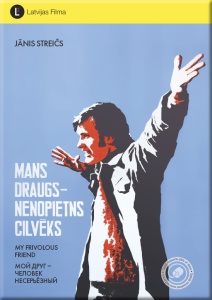 Movie No. 3: My Frivolous Friend (Latvia, 1975)
Movie No. 3: My Frivolous Friend (Latvia, 1975)
Director: Jānis Streičs
Genre: Comedy, Drama
Time for some light-hearted classics! If you ever wonder what was life like back in the Soviet Union, this would be one way to find out. Arvīds – the main character – is a fun-loving, open-hearted guy who goes through life without a care. He takes care of his family, raises his kids, but cannot keep a job which frustrates his wife and mother-in-law. Arvīds also cannot stand incompetence at work and quits every time he is forced to lower his standards. At a new job, Arvīds is once more met with criticism by his colleagues due to his honesty and principles, but this time he is determined not to quit. Moreover, he takes on a side-job as a gravedigger to earn extra money and make his wife happy. Needless to say that things don’t go according to the plan and Arvīds gets into all sorts of trouble. This, however, is a story with a happy ending topped with a good dose of the Soviet ideology of honest working men. Simply enjoyable!
Movie No. 4: Sounds Under the Sun (Latvia, 2010)
Directors: Dāvis Sīmanis jr., Gints Grūbe
Genre: Documentary
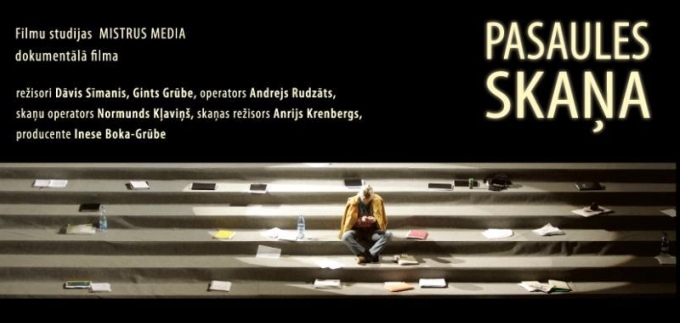
I watched two documentaries this season. Both resonated with me on a personal level; therefore, I’m not exactly objective about them. The first documentary (Sounds Under the Sun) was all about music. In this film, we are getting a glimpse into the backstage of a phenomenal music project where 17 composers from around the globe were invited to create World’s Sun Songs (songs about the Sun). We meet only five composers, but it is enough to get a feel for the complex process of creating contemporary music. To me, it was also fascinating to watch how a piece of music is then transformed into a choir performance, and I finally began to understand the role of conductor in all of this. Educational and eye-opening!
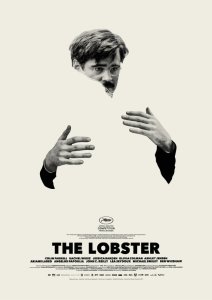 Movie No. 5: The Lobster (Greece | Ireland | Netherlands | UK | France, 2015)
Movie No. 5: The Lobster (Greece | Ireland | Netherlands | UK | France, 2015)
Director: Yorgos Lanthimos
Genre: Comedy, Drama, Romance
Imagine a world where you must find a partner or you will be turned into an animal. Imagine having only 45 days to meet someone suitable. Imagine that the only way you can extend this period is by hunting rogue singles in the woods. Well, this is where David’s problems are only just beginning.
In a dystopian romantic and dramatic comedy, we are thrown into the world of couples versus singles. The rules are ruthless on both sides. You have three options: you find someone and join the couples, you become an animal, or you escape, unite with the singles and stay single forever (unless you get caught). The movie also takes a stab at a distorted way of choosing partners. The main characters are obsessed with finding or faking common traits and interests. It probably would be funnier if it weren’t so sad. On the bright side, you can catch this one on Netflix anytime you feel like dating nowadays is a bummer.
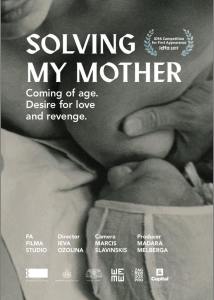 Movie No. 6: Solving My Mother (Latvia, 2017)
Movie No. 6: Solving My Mother (Latvia, 2017)
Director: Ieva Ozoliņa
Genre: Documentary
The second documentary I watched was a film that brought out a lot of controversial emotions. I know it has received quite a bit of praise from critics, but I left the cinema with a feeling that I didn’t like it (and a bit of anger on top of that). The story focuses on a young mathematician who could have brilliant future in science. However, any type of success in personal or professional life just doesn’t happen for Raitis, and he blames his mother. The film follows Raitis during his awkward attempts at dating woman, a bit weird sessions with hypnotherapist and different confrontations with his mother. The relationship with his mother, of course, is the focus of this movie.
I can’t fully explain why I didn’t like the film. On the basic level, it felt raw and unfinished. The story took up a direction but didn’t get anywhere (just like Raitis, I guess). For most parts, it was just sad to watch. Maybe it was because there are still too many Soviet single mothers and their children out there that have a similar story to tell. Maybe it was because there was every possible stereotype of a scientist thrown in promoting a notion that is not true. Or maybe it was because I felt disrespecting the people in the movie just by watching it. I honestly cannot say. But be warned that this film might not be an easy thing to watch.
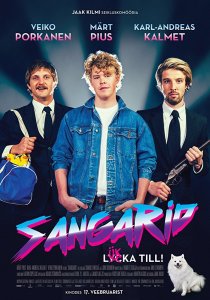 Movie No. 7: The Dissidents ( Estonia | Finland | Latvia, 2017)
Movie No. 7: The Dissidents ( Estonia | Finland | Latvia, 2017)
Director: Jaak Kilmi
Genre: Action, Comedy
If you’re in a mood for an action-packed comedy, then look no further because ‘The Dissidents’ just might be it! It’s a light-hearted film about three Estonian guys escaping the Soviet Union by crossing the Baltic Sea to Finland and then moving on to Sweden. They’re not the sharpest knives in the drawer, so it just makes sense that trouble ensues. I was pleasantly surprised by the quality of the film – I’m not really a fan of ‘guys-doing-stupid-stuff’ comedies, but this was quite watchable.
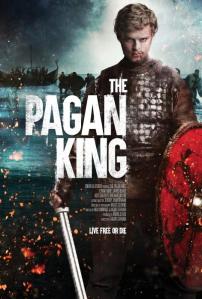 Movie No. 8: The Pagan King ( Latvia | UK, 2018)
Movie No. 8: The Pagan King ( Latvia | UK, 2018)
Director: Aigars Grauba
Genre: Action, Drama, History
In my defense, this type of film is not what I normally understand by European cinema, but it was fresh out of the oven in January 2018, and I was curious (so don’t judge me too hard!). It’s basically good, old-fashioned medieval-style fighting and treachery set in the territory of Latvia back in the 13th century. The budget was obviously a bit short for the film to be a real crowd-pleaser, but it wasn’t all that bad. The historical plot line is really far-fetched, and the back-stabbing doesn’t come close to the Game of Thrones standard (yes, there is a standard now!). However, it’s decent entertainment if you’re in the mood for a bunch of men and women running around and poking each other with pointy things.
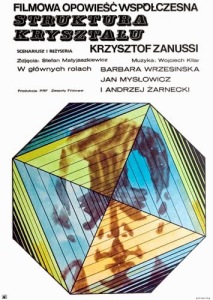 Movie No. 9: The Structure of Crystals (Poland, 1969)
Movie No. 9: The Structure of Crystals (Poland, 1969)
Director: Krzysztof Zanussi
Genre: Drama
I went back to the classics with this Polish drama by Krzysztof Zanussi, and I have no regrets. It’s a story about two friends and scientists – Jan and Marek. They studied together, and they both were supposed to have brilliant careers in science. However, Jan decided to move to the countryside, get married and lead comparatively quiet life whereas Marek embraced the opportunities provided by the world of science. Five years after their last meeting, Marek is visiting with Jan during his vacation time. We are invited to be a part of their conversations as both of them are trying to understand each other and the lives they now lead. It’s basically the same conversation any researcher has with himself sometime during his or her career. I truly enjoyed it in its openness and simplicity!
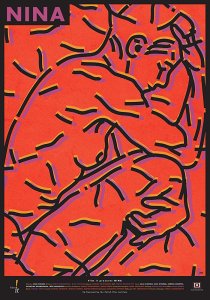 Movie No. 10: Nina (Poland, 2018)
Movie No. 10: Nina (Poland, 2018)
Director: Olga Chajdas
Genre: Drama
My last movie was supposed to be a Swedish comedy, but I got sick and couldn’t make it to the cinema (so I didn’t achieve my goal of watching at least one Scandinavian film per challenge). However, Nina should not be considered anything but a worthy replacement. It was a surprisingly powerful relationship drama.
Nina and her husband are struggling to have a baby, and they are looking for a surrogate mother. By accident (car accident caused by Nina), they meet Magda, and they both seem to like her. Nina and Magda start spending more and more time together until Nina realizes that Magda is gay and this might be not just a friendship. Needless to say that things get increasingly complicated with Nina’s marriage, desire for the baby and newfound passion for Magda. The movie draws you in, and you cannot help but feel for Nina who is discovering a new side to her sexuality as well as losing hopes of becoming a mother. Above all that, there’s pressure from society, family, and workplace to achieve a certain status quo at her age.
I hope I have inspired to watch at least one of these movies (or try out watching something else from European cinema)! For other movie ideas, you might want to check out Mubi.com or FestivalScope.com where you will find many more things to choose from 🙂
